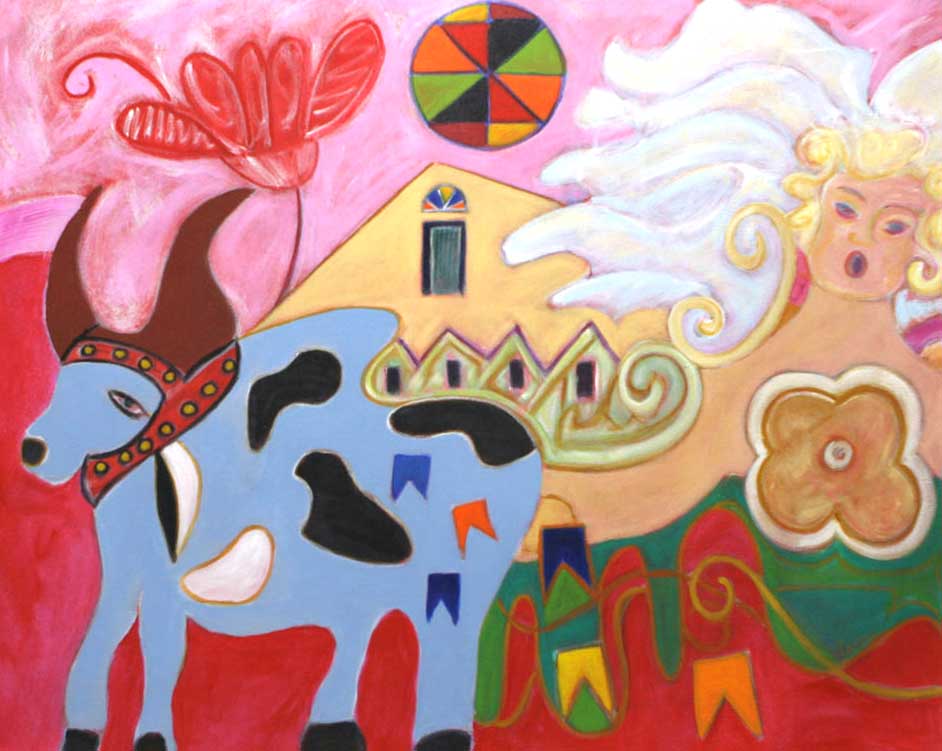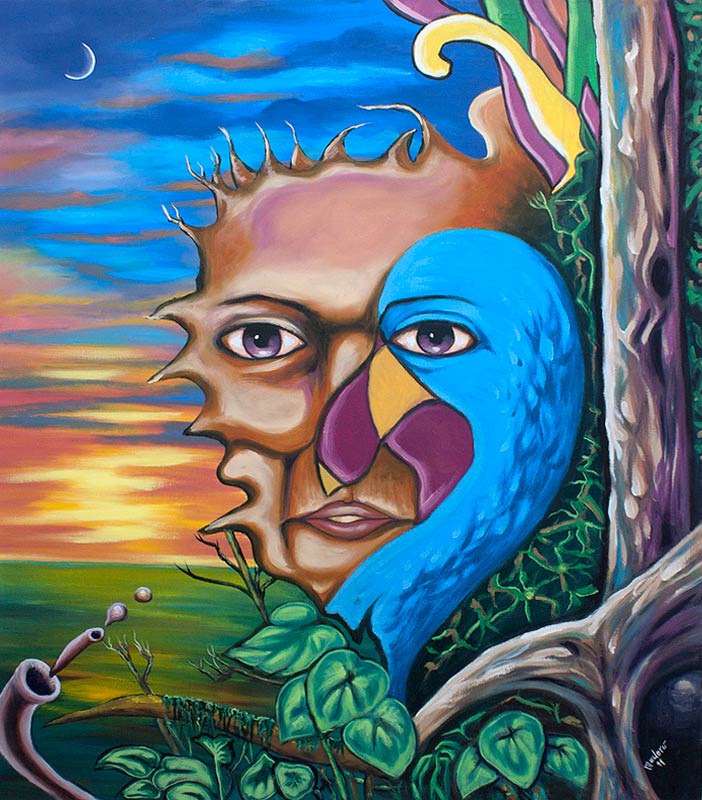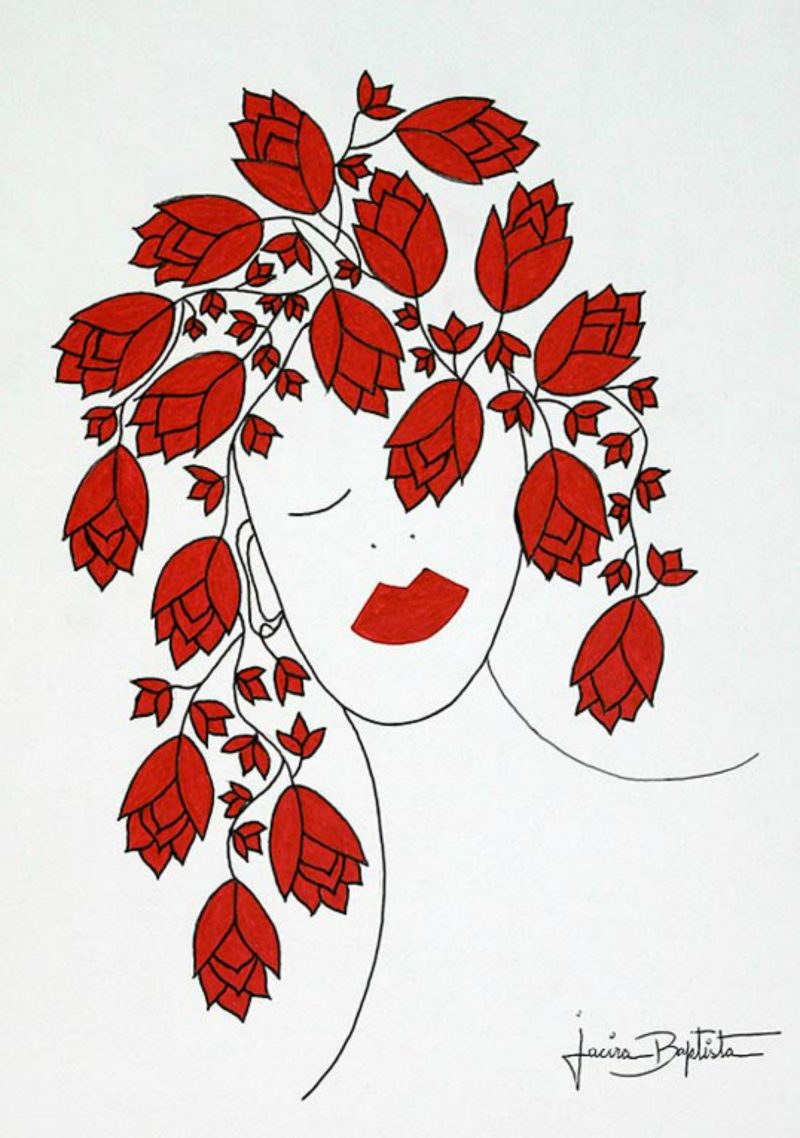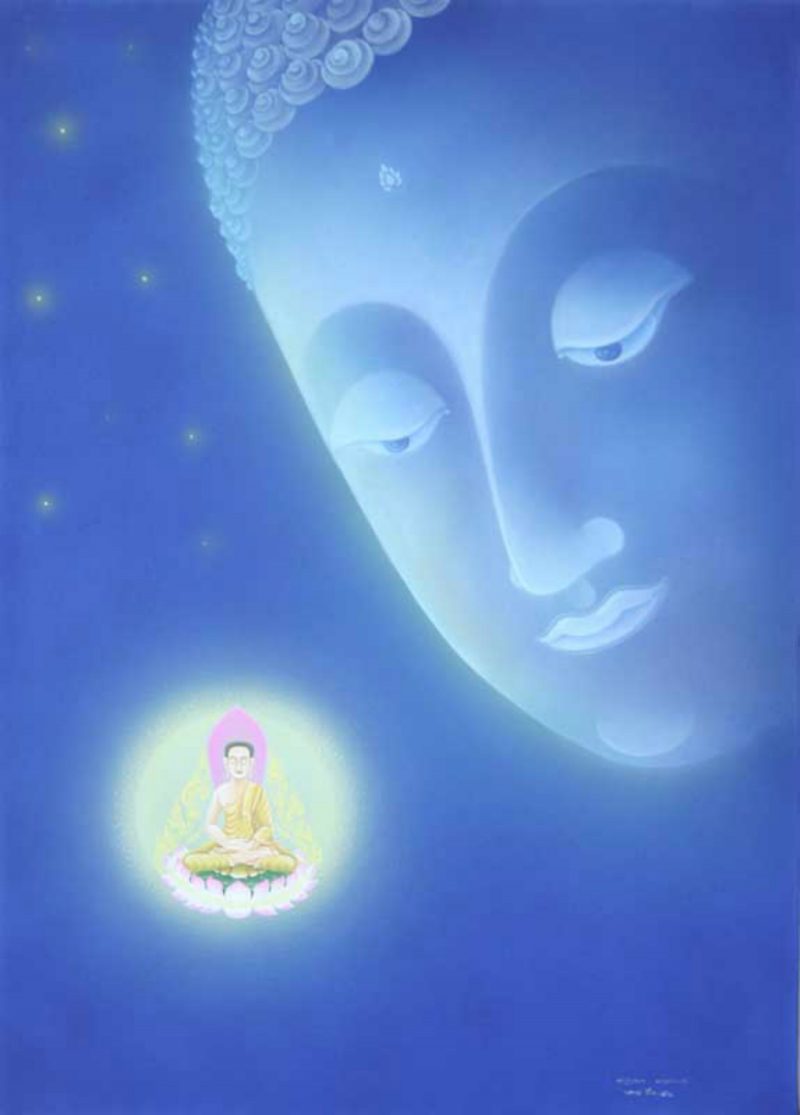Unless you’ve taken an art history class, you probably aren’t aware of the Surrealism movement. If you recognize it by sight, it’s possible that you’re not aware of its status as an art movement. Furthermore, some may recognize famous Surrealist artists such as Salvador Dali, but not be aware that the movement is very much alive and progressing even today! NOVICA is one place where modern-day artists exhibit and sell their Surrealist-themed artwork. Many works that NOVICA features, such as “Things of Brazil” by Marlene Essucy, highlight regional culture while exhibiting the Surrealist style.
Surrealism, in short, is an art movement that features a dreamy feel, situations and scenery that defy logic, and most often presents themes and subject matter involving nature. The movement began around 1899 when Sigmund Freud published “The Interpretation of Dreams.” This book focused on the validity of planes outside of the “real” and “logical” world. Many artists, enjoying the freedom that this definition gave them (after all, who can tell them what occurs in their minds?) attached themselves to the movement instantly. Others were intrigued by a style of artwork that broke away from technical and proper processes and content matter. Truly, it is a style that is very personal to the artist.
The work, “Lord of the Jungle” by Madero, below, is one piece that examines a separation from logic. This piece features the theme of nature with imagery to which everyone can relate: the human face. However, the separation from logic is illustrated by the inclusion of a jungle bird making up part of the face. The eyes of both human and avian match while the contours of the bird’s neck complete the outline of the face.
When one thinks of “nature” as an artistic theme, the portrayal of animals may come to mind. However, there are many other aspects of nature that are revealed in Surrealist art. Plants, for example, are commonly used. Jacira Baptista used the concept of plants to marry humanity and nature in her artwork “Tulips of Brazil.” The beautiful red flowers in her artwork function as hair and tie to the vibrant lips on the female figure. This replacement of hair with flora results in a mythical feel for the artwork overall.
Surrealist artwork can address spiritual matters as well. Outside of seemingly random places and subject matter, artists who employ this style are known to depict religious events, figures, or ideas. These works can be highly personal to the artist. Interpretations of the artwork can vary from viewer to viewer. This truly makes these works of art special. “The Nirvana” by Poovadol, pictured below, is an example of Surrealist art that features religious iconography in a dream-like setting.
No matter your taste in artistic styles, it cannot be denied that the Surrealist Art movement is unique. From dreamscapes to distortions of reality to commentary on daily life and religious imagery, the span of what defines Surrealist Art is literally up to interpretation. If you’re looking for an interesting conversation starter, look no further than NOVICA’s selection of Surrealist Art.









You have written an awesome article
very well written and very informative